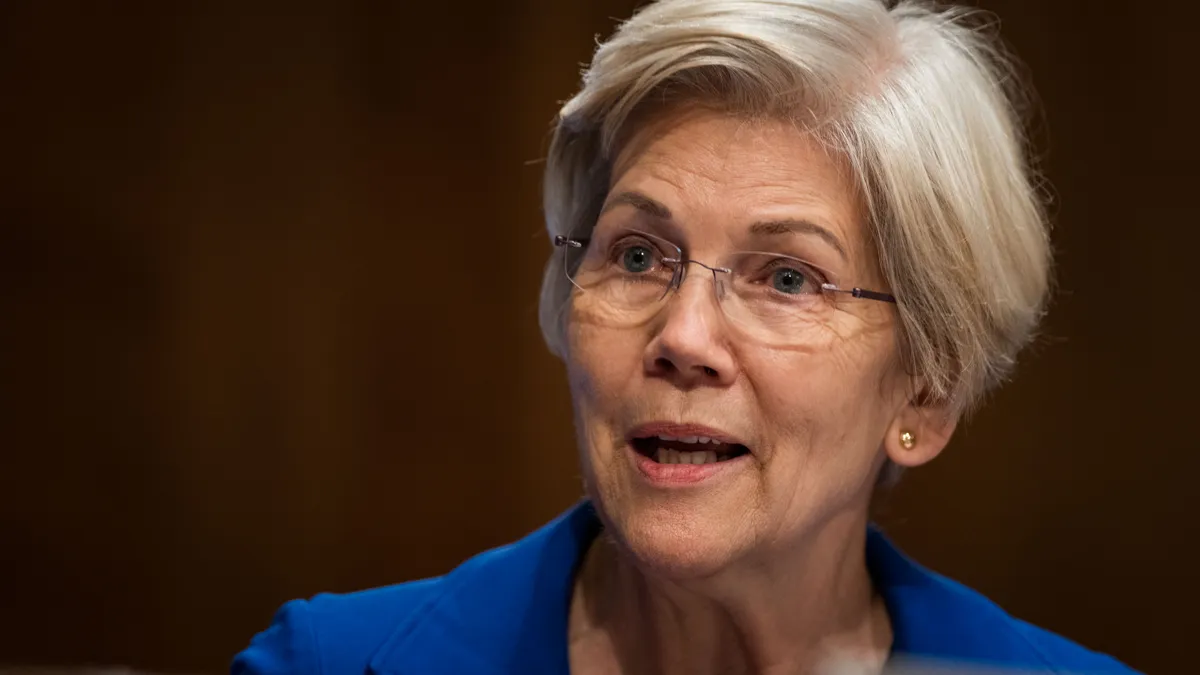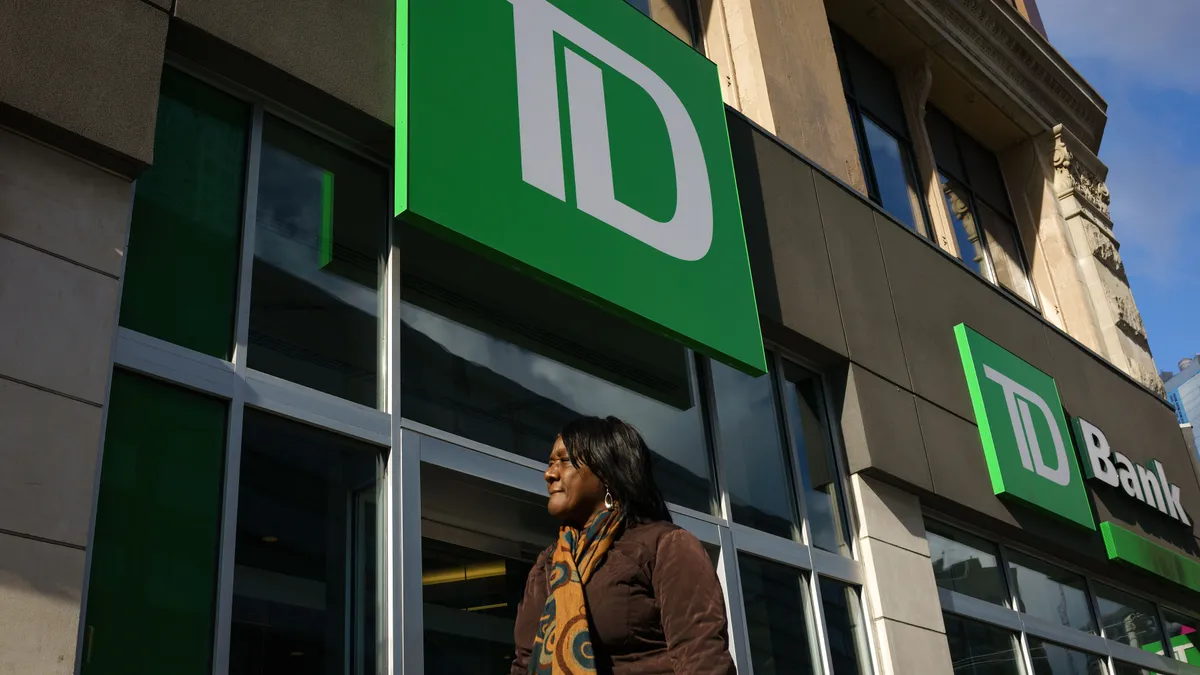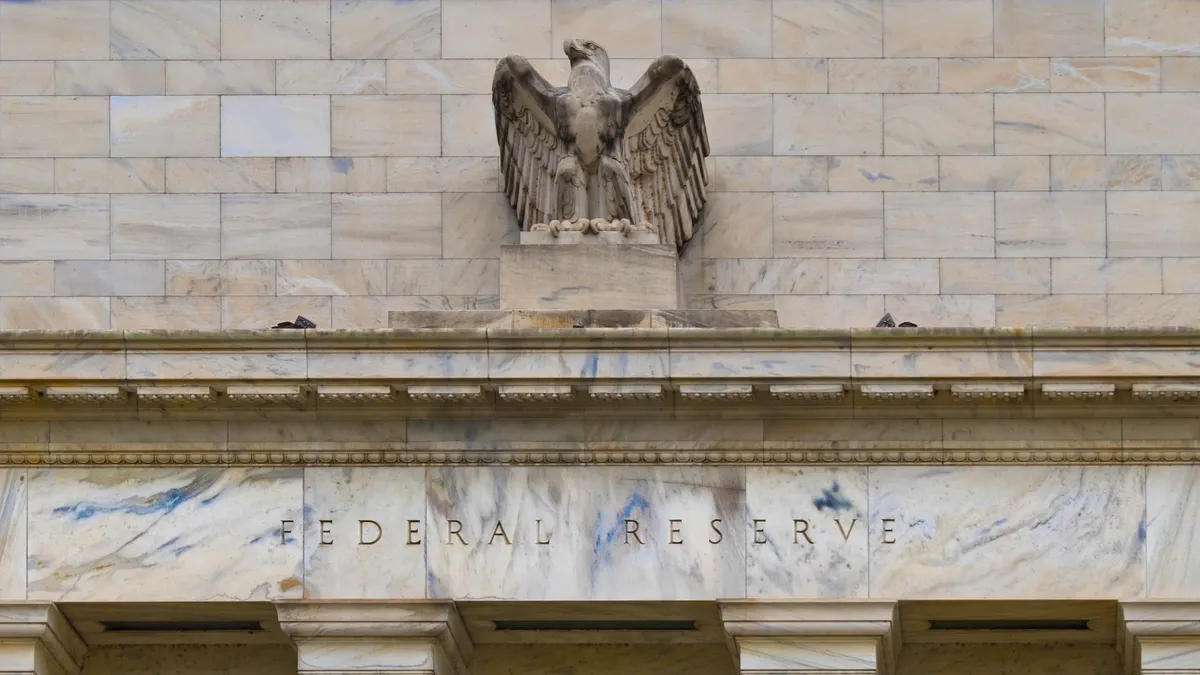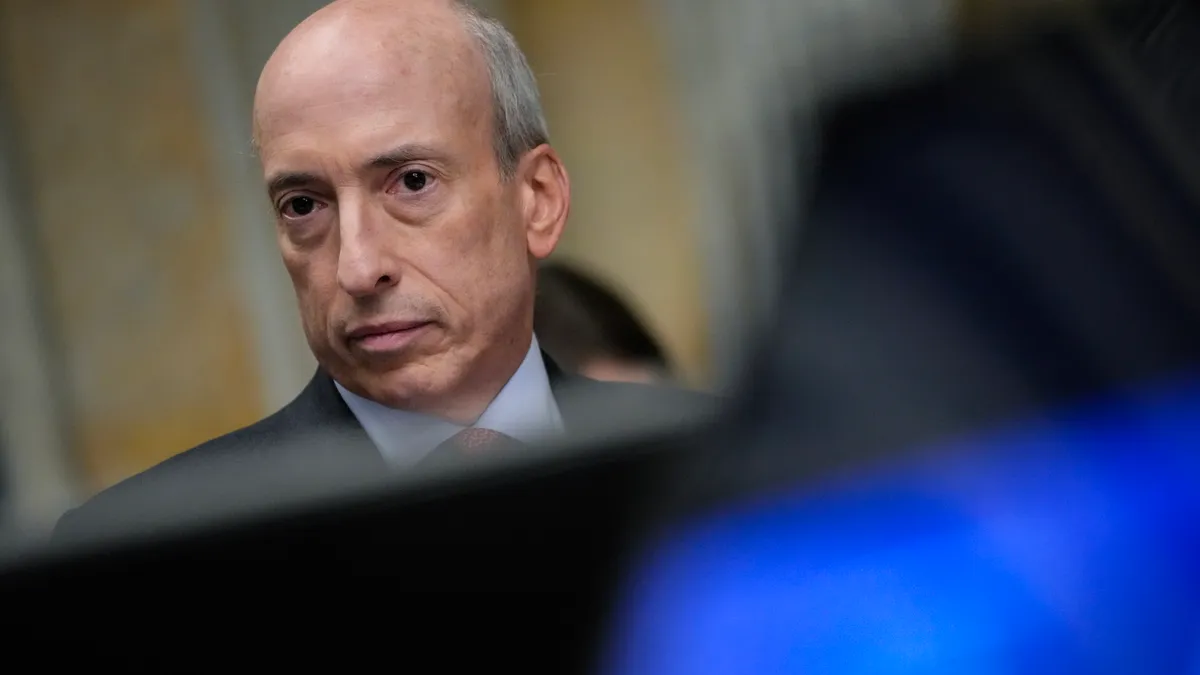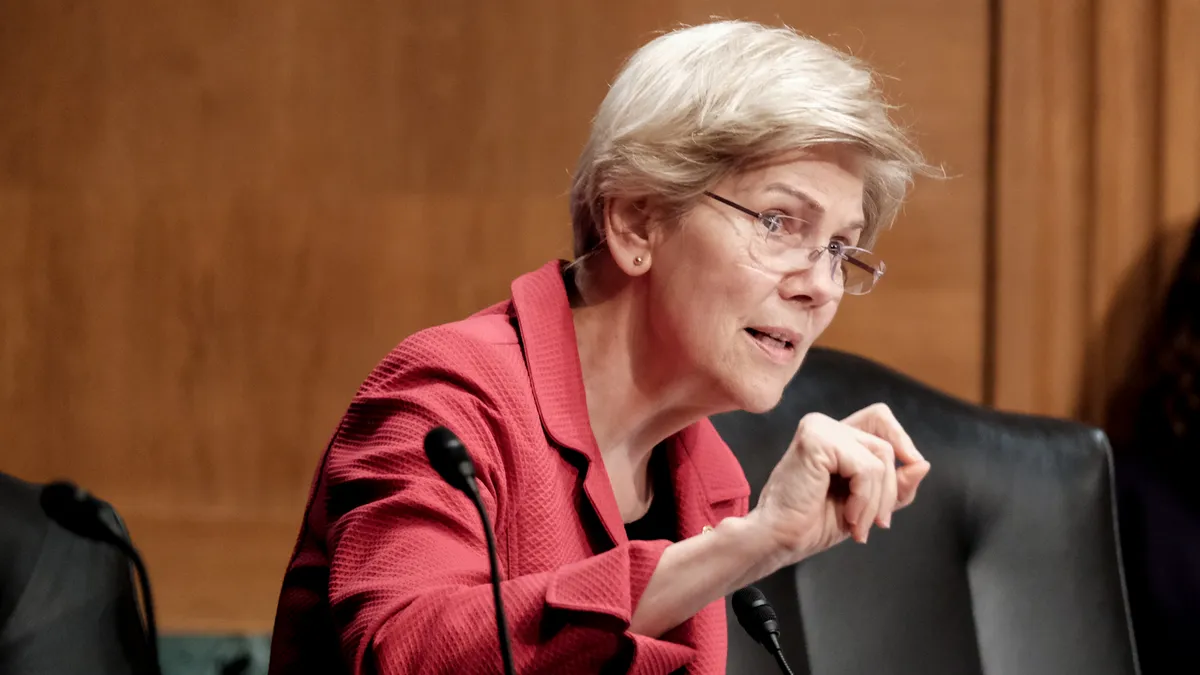Two Democratic senators asked Acting Comptroller of the Currency Michael Hsu, in a letter Monday, why his agency approved the merger between Flagstar and New York Community Bank when the Federal Deposit Insurance Corp. did not.
Sens. Elizabeth Warren of Massachusetts and Richard Blumenthal of Connecticut cited a Capitol Forum article from October 2022 that quoted an anonymous FDIC source as saying, “no one” at the agency “was comfortable recommending a merger approval” between the two banks. In its review of the potential tie-up, the FDIC flagged Flagstar’s fair-lending missteps and NYCB’s exposure to multifamily loans, Reuters noted in an article last month.
NYCB and Flagstar first proposed their combination in April 2021, but “after a year had passed without FDIC movement,” the banks “schemed to restructure their merger so it no longer needed FDIC approval,” Warren and Blumenthal wrote Monday.
NYCB and Flagstar in April 2022 proposed transitioning Flagstar’s federally chartered state savings bank subsidiary into a national banking association, then merging NYCB’s state-chartered savings bank subsidiary into the national bank.
The banks, in a press release at the time, said a national bank charter was “appropriate” for the combined entity because the Office of the Comptroller of the Currency had regulated Flagstar’s national mortgage banking business for years.
The OCC approved the tie-up in October 2022, calling the charter change a “business decision” and adding “preference of charters does not constitute a statutorily relevant consideration under the [Bank Merger Act].”
Warren and Blumenthal are urging Hsu to tell them, by May 15, what risks the OCC recognized when approving the merger, and whether the agency consulted with the FDIC before giving the deal a green light. The OCC, according to Reuters, had its own concerns with NYCB’s commercial real estate exposure but pulled the trigger on the thinking that Flagstar’s assets would diversify NYCB’s loan book.
In Monday’s letter, Warren and Blumenthal said their misgivings about the NYCB-Flagstar tie-up hardly end in October 2022 — and the FDIC didn’t escape rebuke. Both the OCC and the FDIC approved NYCB’s acquisition of a sizable portion of assets from the failed Signature Bank in March 2023, just six months after the OCC greenlit the Flagstar transaction, the senators noted.
The move pushed NYCB’s asset total past a $100 billion threshold that triggers stricter oversight and requires that the bank hold more capital in reserve.
“These two rushed, rubber-stamped mergers created grave risks for NYCB,” the senators wrote Monday, referencing the Flagstar and Signature transactions.
The surprise loss
NYCB’s financial health was cast into doubt in January, when the bank disclosed a $252 million loss over CRE exposure and cut its quarterly dividend by 70%. The announcement sent NYCB’s share price into a tailspin that continued — despite a CEO change — until the bank received a $1.05 billion capital infusion from new investors, who brought in yet another CEO (who, coincidentally, ran the OCC before Hsu).
The cash infusion “has appeared to, at least for now, stabilize” NYCB, Warren and Blumenthal wrote. But the senators took issue Monday with the perceived lack of scrutiny by the OCC into NYCB between the Signature transaction and its January stumbles.
“NYCB had nine months prior to January to prepare for the new capital requirements,” the senators wrote. “As NYCB was experiencing internal instability, the OCC appeared to be asleep at the wheel.”
As a condition to approving the Flagstar merger, the OCC required NYCB, for two years after the transaction, to run its dividends by the agency. The dividends were allowed as long as the OCC did not object.
The senators asked Hsu on Monday at what point the OCC noticed NYCB struggling to adapt to its higher capital requirements and, further, why the agency took until the fourth quarter of 2023 to press the bank to cut its dividend.
“The OCC allowed NYCB to engage in two risky mergers in a six-month period, then neglected to address NYCB’s risks until the walls were ready to crumble,” Warren and Blumenthal wrote. “Regulators promised to do better, but the near-collapse of NYCB in early 2024 indicated the OCC has once again abdicated its oversight responsibilities.”
OCC not in the lead
Monday’s letter comes less than a month after the FDIC proposed more intense scrutiny of bank mergers. Deals that create banks with more than $100 billion in assets, under the proposal, can expect to face greater focus from regulators on financial stability.
But while U.S. financial regulators by-and-large have received a “come-to-Jesus” moment with regard to oversight in the wake of last year’s bank failures, it should be noted that the OCC has not been the lead agency on any of the three major post-mortem reports: The Federal Reserve wrote the report on Silicon Valley Bank, and the FDIC wrote the reports on Signature and First Republic.
Warren and Blumenthal asked Hsu on Monday how the OCC has changed its supervisory and examination practices since the SVB and Signature failures.
Hsu, for his part, has not been silent. In a January speech, he said regulators shouldn’t view mergers as yes/no proposals.
“The question is not should we or shouldn’t we,” Hsu told Reuters. “The question is, ‘How do we get the best [mergers]?’”
Wait, the CFPB?
The senators’ letter, in one respect, acts as a plug for a bill Warren introduced in 2021 that would make the Consumer Financial Protection Bureau a “backstop” of sorts, requiring the agency to review and approve all bank mergers that include consumer products and, further, requiring that discussions between regulators and the merging institutions be disclosed before the merger application is filed.
“This bill would have helped the public understand why the FDIC did not approve the initial merger, and why the OCC approved the merger without addressing FDIC concerns,” the senators wrote Monday.
Even if such a measure were to proceed, the CFPB itself faces a heavy challenge to its authority. The Supreme Court this year is due to rule in a case that questions the constitutionality of the agency’s funding. If the court rules in favor of the plaintiffs, that could spur an undoing of more than a decade of regulation.
As it stands, Warren and Blumenthal asked Hsu on Monday about the OCC’s level of communication with other regulators — when the agency knew of the “material weaknesses” NYCB disclosed last month, and when the OCC notified the Securities and Exchange Commission, in particular.



